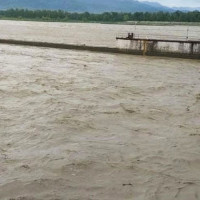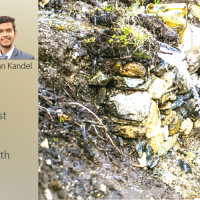- Friday, 29 August 2025
Industrialists seek compensation to relocate industries
By Laxman Poudel,Bhairahawa, Aug. 29: Industrialists in the Bhairahawa–Lumbini industrial corridor have expressed deep uncertainty after the Supreme Court ordered factories in the area to be relocated within two years.
They have argued that without guaranteed compensation and land allocation, relocation would be impossible to implement.
The SC issued the directive on Wednesday in response to a writ petition filed by advocate Prakash Mani Sharma, ruling that pollution from the corridor was severely affecting human health as well as the Lumbini World Heritage Site. This follows an interim order issued in July 2019 prohibiting industries within 15 kilometres of the Lumbini Development Area. However, the ruling was not enforced then.
Around 50 industries operate in the Bhairahawa–Lumbini corridor, including major cement producers such as Nepal Ambuja, Siddhartha, Supreme, Jagdamba, Goenka and Reliance, alongside steel plants, refineries, paper, cardboard and plywood factories.
Likewise, outside the corridor, large plants such as Arghakhanchi Cement and Bishal Cement are also in operation. According to the Siddharthanagar Chamber of Commerce and Industry (SCCI), total investment in these industries amounts to roughly Rs. 70 billion and they have employed around 10,000 workers. Business leaders have warned that relocation could trigger a severe employment crisis.
Multiple studies have identified industry as the primary contributor to Lumbini’s worsening air pollution. Research ranging from a 2012 study by IUCN and UNESCO to a recent investigation by scientists in Pune, India, consistently shows high pollution levels in the region.
The latest findings indicate fine particulate matter (PM 2.5) concentrations of 270 micrograms per cubic metre in Lumbini which is seven times Nepal’s national standard and 11 times the World Health Organisation’s limit.
A government report also found that emissions from several cement factories, including Brij, Goenka, Siddhartha, Pathak, Agni and Bishal, exceeded permissible standards.
Rohit Agrawal, manager of Siddhartha Group, insisted that industries involving such massive investments cannot be moved without adequate compensation. He warned that enforcing the order could put the jobs of some 10,000 workers at risk.
Similarly, Aprit Agrawal, manager of Nepal Ambuja Cement, also maintained that industries were making efforts to control emissions and argued that immediate relocation was unrealistic.
Rajesh Agrawal, General Manager of Arghakhanchi Cement, said relocation would create a major crisis unless the government provided both land and compensation. His factory alone, with an investment of Rs. 10 billion, produces 1,200 metric tonnes of clinker daily and employs 600 workers.
Although the Office of the Prime Minister and Council of Ministers had directed relevant bodies back in December 2013 to take urgent measures to curb pollution in Lumbini, those instructions remain unimplemented.
Netra Acharya, President of the SCCI, described the SC's latest ruling as 'deeply unfortunate' for entrepreneurs. “These industries were established with state approval. Instead of forcing relocation, it would be more practical to strengthen pollution control measures. Moving the factories elsewhere is not feasible,” he said.





-square-thumb.jpg)










